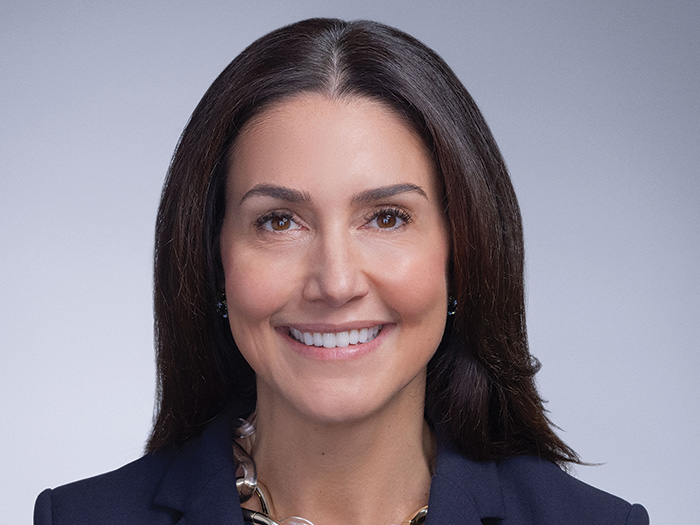Legal Roundup: Johnson & Johnson in Court (Again), COVID-19 Worker Safety Cases Rising and More

Johnson & Johnson Talcum Powder Damages Cut, But Still Over $2 Billion
The Case: Johnson & Johnson has been fighting to overturn a 2018 verdict awarded to 22 women who say that asbestos in the company’s talcum powder caused their ovarian cancer.
The women were awarded $4.69 billion, leading Johnson & Johnson to appeal.
The Hill reports: “Johnson & Johnson has defended its talc-based products as safe as the company has faced more than 19,000 lawsuits relating to those products as of March. The company has appealed almost all of the cases it has lost. Last month, the company announced it would discontinue its talc-based products in the U.S. and Canada, citing decreased sales and ‘misinformation around the safety of the product and a constant barrage of litigation advertising.’ ”
Scorecard: The Eastern District Missouri Court of Appeals cut the verdict from $4.69 billion to $2.1 billion but did not overturn the lower court ruling. It said that some of the women did not live in Missouri and should have been left out of the suit entirely. Johnson & Johnson continues to claim its products are safe and may seek another appeal.
Takeaway: Johnson & Johnson is another company feeling the effects of the uptick in nuclear verdicts. Whether the company’s products are safe or not, its reputation has taken a hit, and juries are siding with the plaintiffs who have suffered.
Families of Three Dead Workers Sue Tyson Over Coronavirus Safety
The case: Tyson Foods has been sued by the families of three workers who died after contracting coronavirus at an Iowa meat-packing plant.
They claim the company did not do enough to keep their loved ones safe and “knowingly put employees at risk and lied to keep them on the job,” according to the Associated Press.
“As the outbreak grew, the company failed to implement safety measures, allowed some sick and exposed employees to remain on the production line, and falsely assured workers and the public that the plant was safe, the suit alleges.”
A Tyson spokesperson said safety is a top priority for the company, and it implemented safety measures in accordance with or in excess of federal guidelines.
Scorecard: The lawsuit has just recently been filed and has not yet come to a resolution.
Takeaway: Companies need to be diligent about COVID-19 safety. As cases begin to rise again in the U.S. and businesses reopen, it is especially important to review worker safety and provide appropriate PPE when necessary to mitigate liability for worker infections.
Bayer Paying $10.9 Billion to Settle Weed-Killer Cases
The Case: For years, people have claimed that popular weed killer Roundup causes cancer.
The product’s manufacturer, Monsanto, has been fighting the accusations in court. Bayer AG, the German pharmaceuticals and life sciences company, inherited roughly 125,000 claims when it acquired Monsanto for $63 billion in 2018.
Scorecard: Bayer AG recently agreed to pay $10.9 billion to settle approximately 100,000 cases, or 75% of the claim tally.
Takeaway: Reuters reports: “The deal dwarfs previous out-of-court product liability settlements, such as Merck & Co’s $5 billion deal to end litigation over its withdrawn painkiller Vioxx, and Bayer deals worth $2 billion to settle claims of harm caused by its Yasmin and Yaz birth control pills.”
Despite the landmark settlement amount, the company admits no wrongdoing and says the product is safe and regulated.
The Fight for James Brown’s Will May Finally Come to a Close
The Case: It’s been 14 years since the death of James Brown — aka the Godfather of Soul, the Hardest Working Man in Show Business.
But the fight over his estate has raged on all these years.
In one corner is Tommie Rae Hynie who married the “I Feel Good” singer in 2001. She claims to be entitled to at least a third of his estate. (Their marriage was annulled in 2004.)
In the other corner are lawyers for Brown’s children aiming to carry out Brown’s request to give most of his money to underprivileged students in Georgia and South Carolina.
Scorecard: The South Carolina Supreme Court ruled that Hynie was not actually legally married to Brown because of a previous marriage that was never annulled.
The New York Times reports: “In its ruling, the Supreme Court instructed the lower court to ‘promptly proceed with the probate of Brown’s estate in accordance with his estate plan,’ which called for the creation of a charitable trust to help educate poor children.”
Takeaway: When estates get large, squabbles get larger. But the end of this argument underscores the importance of clear and binding legal contracts. &










